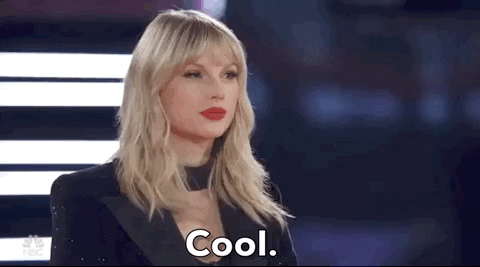Making a splash with your science in 2023 🌊
(No, Baleen isn't back - sorry!)
Hi pod!
It’s been a little while since I wrapped up the newsletter so I hope you don’t mind me diving into your inbox with a little heads up (no, Baleen isn’t back!)
While I’ve been a marine science writer for some time, I’m ramping this up in 2023. I want to write LOTS more articles about the cool ways people are protecting the ocean and, in order to do that, I need epic stories and science to pitch to my editors.
That’s why I’m getting in touch. I know there are lots of awesome conservationists and marine scientists subscribed to this list so I wanted to send a little reminder that if you’re working on some cool marine science or a conservation project, I’d love to hear about it.
If you’ve got a paper in the pipeline but aren’t sure whether it might be a good fit for me, check out my tips below. (My latest piece for Nat Geo is a good example that ticked all of these boxes.)
A reason to write about marine life
Let’s start with an obvious one. As a writer, I’m passionate about the ocean and jump at any opportunity to write about marine science and conservation. So, I love hearing from scientists, conservationists and charities about the work they’re doing to protect the ocean. In particular, I enjoy writing about new scientific studies that teach us something new about the ocean. One of my favourite pieces was writing about a newly discovered paternal behaviour in bigfin reef squid for Nat Geo.
Something that makes me go ‘oh, cool!’
When I say I’m always looking for a new story, I think it’s important to emphasise the word: story. I want to hear about studies that jump out at me and makes me want to find out more. Is it something I’m going to want to go away and tell my friends and family? And, more importantly, would my non-fishy friends care?
A study or story that’s new and timely
When an editor receives a pitch, they’ll always ask “why now?”. This hook could be the publication of a new paper in a journal or the launch of a ground-breaking conservation project. If it’s something that’s been going on for a while and people already know about, that tends to lessen the appeal – unless there’s a new angle.
A heads up
It’s always helpful to know about an upcoming study before it’s published. Having a heads up, or early access to the paper under embargo, gives me time to pitch to my editors. I can also turn around a piece ready to go live as soon as the journal is made public. If I only hear about the study once it’s public – or, worse, once it’s already had widespread coverage – it’s going to be much harder for me to write about it.
Global relevance
Often, the titles I write for are looking for a story that has global relevance. For example, if you did a study on a population of manta rays in a remote location, it’s got more chance of getting pick up if what you’ve found tells us something that could inform global conservation plans and help protect the species around the world.
Exclusivity
It’s not always possible, but having an exclusive can improve my chances of an article being commissioned. This can be a real draw for the right story. If you’re able to offer an exclusive – and hold off contacting other journalists until my article is published – I’d love to chat with you.
I hope this helps give you an idea of the type of marine science studies and stories I’m keen to hear about. Think you have something that fits the bill? Get in touch!
Otherwise, I hope you’re all really well and 2023 is going smoothly so far!









